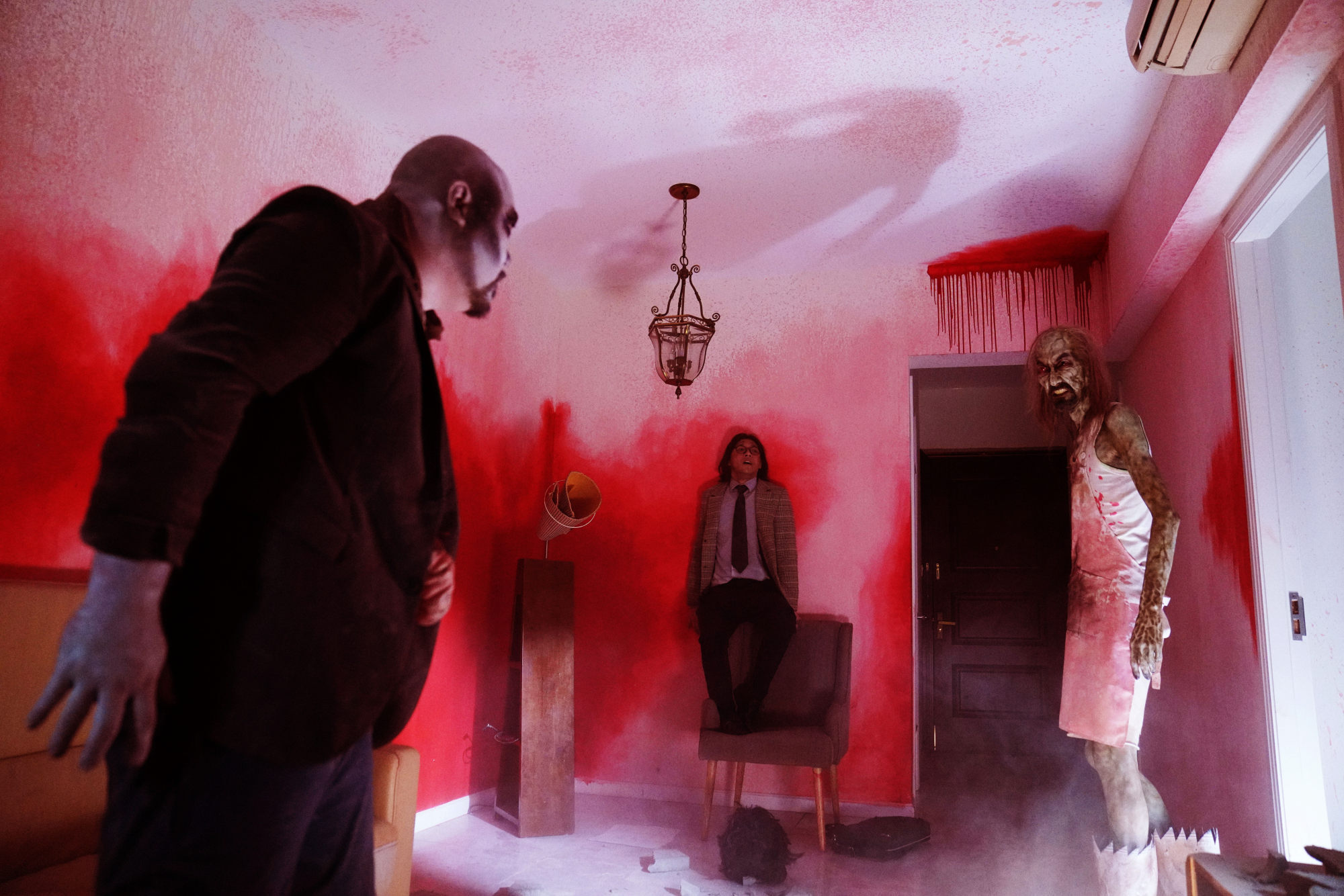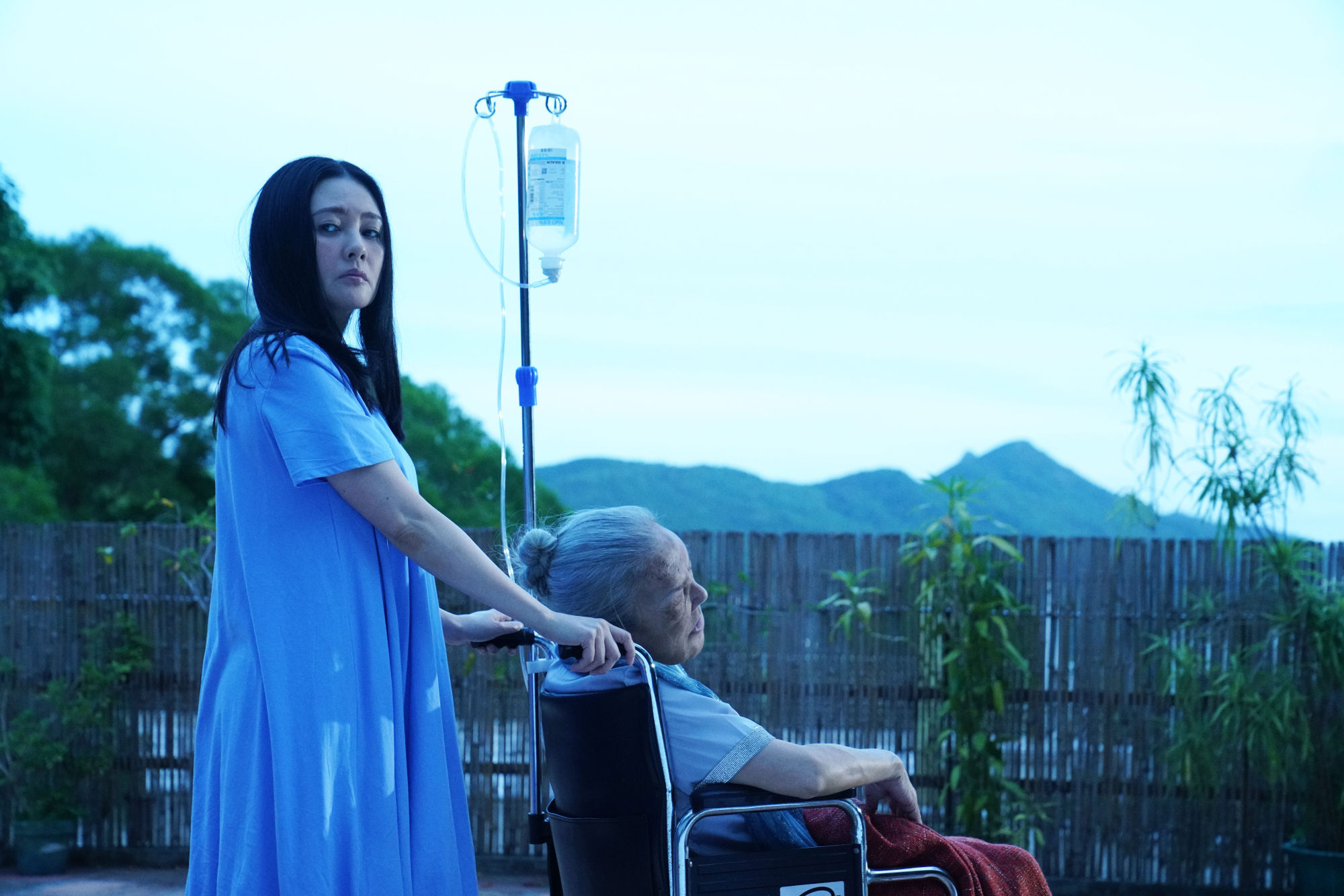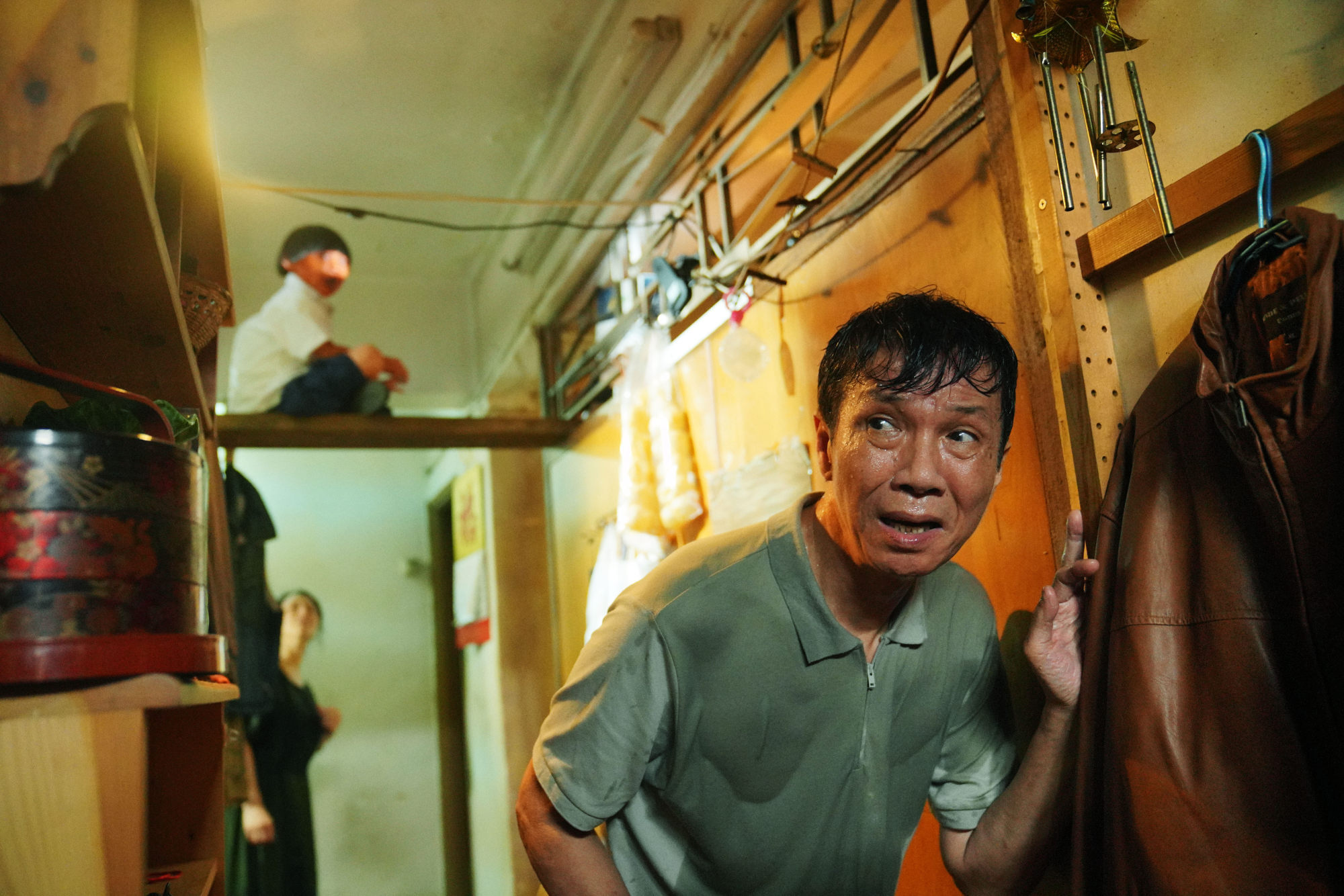
Fruit Chan’s horror comedy Coffin Homes is a wild and relentless satire on Hong Kong’s real estate market madness – a subject the director knows a surprisingly great deal about
- Chan explains how his vision of making a more humanistic feature turned into a horror movie whose gruesome cartoonish violence earned it a Category III rating
- Despite the film’s mocking of Hong Kong’s property-market frenzies, Chan argues that his approach is more ironic than critical
Fruit Chan Gor may have been directing movies since the 1990s but somehow he has never made a single one that opened in Hong Kong cinemas during the peak summer season – until now. That unlikely milestone is the very first thing he pointed out when we met up for this interview. “Is this my first step of figuring out marketing?” he asks rhetorically and starts laughing.
It is a bit of an unusual claim from the filmmaker of modern classics such as Made in Hong Kong (1997) and Durian Durian (2000).
“None of my past films were picked to open during summer,” he says. “You know, my films are a bit on the eccentric side, and I seldom make mainstream movies – except maybe Invincible Dragon? Or does The Midnight After count? That one was another weird movie in spite of its mainstream cast – but it still opened in April. Coffin Homes, by comparison, is officially a summer movie.”
Chan’s latest film is a horror comedy that relentlessly makes fun of Hong Kong’s property-market frenzies while indulging in the most excessive displays of cartoonish violence – so much so that the film has been given a Category III rating for its local cinema release, meaning people under the age of 18 cannot be admitted to see it.
Long-time admirers of Chan’s socially aware oeuvre would not be surprised to hear that it has always been his wish to make a satirical film about Hong Kong’s housing problems. Indeed, another of Chan’s finished-but-as-yet-unreleased projects, The Abortionist, also touches upon the issue; that film, which is based on a true story, sees a teenager ask her mother to sign her apartment over to her.
But Coffin Homes’ current label as a summer movie is actually less by Chan’s own meticulous design than it is the result of several coincidental developments that have significantly reshaped his project during the coronavirus pandemic.
Coffin Homes review: Fruit Chan satirises Hong Kong’s property obsession
“Originally, this was not a ghost movie,” the director confesses. “It was meant to be my kind of [humanistic] movie. But in May or June last year, when the pandemic situation was quite severe, my investor offered to start a Hong Kong production that wouldn’t require going through [mainland Chinese] censors – a genre film that could enter production quickly.
“There were no ghosts in my [original] script. But since haunted flats are a step into the housing problems that my story addresses, I took three weeks to come up with a new draft,” Chan says. “Haunted houses are a common plot device in movies, so the biggest question for me is how I should handle that. I don’t want to just follow the usual practices of genre movies – but I can’t do without them either.”
Coffin Homes’ mainstream status also partly stems from the unprecedented impact that the pandemic had on Hong Kong productions in mid-2020. Oddly enough, horror movies were suddenly seen as a sound investment in that brief window due to their lower budgets and shorter production periods. Chan’s film looks to be one of the highest-profile entries to come out of this mini horror boom.

“Last year, every investor was looking to make a ghost movie,” Chan says. “But as soon as [the pandemic] quietened down and the market went back [to normal] again, everyone stopped making ghost movies. They have now gone back to being a niche product here – a bit like the art-house movies are – maybe because their markets are restricted to Hong Kong and Southeast Asia [and not mainland China].”
Although Chan did not initially envisage Coffin Homes as a horror movie, he is certainly no stranger to the genre, having directed two very well-regarded efforts in Dumplings (2004) and The Midnight After (2014).
“I’m still learning [about the genre, because] those two movies mentioned are not related to ghosts, they’re very different from ghost movies. My first film, Finale in Blood, is a ghost movie, but the ghosts in that film are very polite and they don’t [cause trouble].”

His first experience of making a proper ghost movie arrived with the short film Jing Zhe, from the horror anthology Tales from the Dark 1 (2013). “I think I did pretty well with that film, considering its small budget, and that we shot for only five days,” he says.
If Chan makes himself out to be a relative newcomer in making feature-length ghost movies, no one could argue with his veteran status in the frightening subject matter of Coffin Homes: property speculation. When I ask him about his personal experience of owning properties, the filmmaker is noticeably excited to relive the past.
“I was already aboard the property speculation train when I was still an assistant director. Guess what our ‘lineage’ was like? We were all following the lead of Johnny Mak Dong-hung,” Chan says of the director best known for the 1984 classic Long Arm of the Law. “We were only kids then, but from what we saw, whenever they were working on a screenplay, all they talked about was property speculation.”

The absurdity of Chan’s flat-owning history arguably peaked when he happened to walk past a long queue in Hong Kong’s Central district in the 1990s, impulsively decided to join it, and ended up buying a flat in Kingswood Villas, in Tin Shui Wai, right there. “Within less than five minutes inside the showroom I was asked to put down a deposit. I hadn’t even seen a show flat yet, much less knowing the direction [my flat] was facing,” he recalls.
This kind of seemingly irrational behaviour in turn informs the real estate hegemony in Hong Kong, which in Chan’s view is not restricted to the roles played by wealthy property developers.
“Property speculation is not limited to the rich in Hong Kong,” he says. “Anyone who owns a property – even just a tiny flat that you rent out to someone else – can contribute to the hegemony, because you have the right to increase the rent once every two years. ‘Don’t like it? Then you can move out and I’ll lend it to someone else!’ This hegemony covers the entire population, and the story of Coffin Homes brings out the fact that people from all walks of life can be a part of that.”

While there are enough examples of exploitation – and cold-blooded murder – in the film to make it look like an utterly hopeless picture, Chan argues that his approach to Coffin Homes is more ironic than critical.
“The audiences are free to decide if my film is being critical. But what’s certain is that I have brought up a social issue – an undeniable one,” he says.
“It’s like if you were a mainland Chinese citizen, you’d inevitably be educated about the [Chinese Communist] Party [when you grew up]. If you’re born a Hongkonger, however, all you ever hear about will be the housing and rent issues. I think these issues affect all Hongkongers and they have no way of avoiding them.”

Coffin Homes opens on August 5.
Want more articles like this? Follow SCMP Film on Facebook

